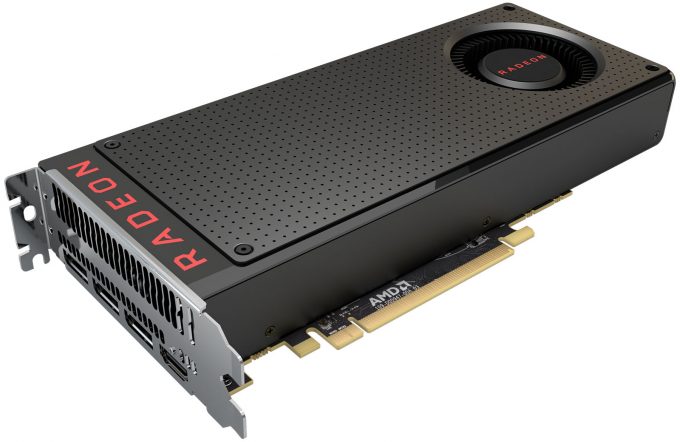- Qualcomm Launches Snapdragon 4 Gen 2 Mobile Platform
- AMD Launches Ryzen PRO 7000 Series Mobile & Desktop Platform
- Intel Launches Sleek Single-Slot Arc Pro A60 Workstation Graphics Card
- NVIDIA Announces Latest Ada Lovelace Additions: GeForce RTX 4060 Ti & RTX 4060
- Maxon Redshift With AMD Radeon GPU Rendering Support Now Available
AMD To Release Updated RX 480 Driver ‘In The Next 48 Hours’ To Adjust Card’s PCIe Power Draw
Since the release of AMD’s latest top-end graphics card, the Polaris-based Radeon RX 480, a lot of attention from the community has been focused on an alleged problem where the card can pull too much power out of its PCIe slot. In gist: a GPU shouldn’t pull more than 75W out of the slot itself, whereas the RX 480 has been found by some reviewers to pull upwards of 20% more than that. While there have been a few reported cases of incidents so far, AMD has remained adamant that there is no real issue.
Despite the non-issue, though, AMD has promised to issue a new driver that will essentially reduce the amount of power draw from the PCIe slot with minimal impact to performance. That driver was originally supposed to land yesterday, with AMD waiting until very early this morning to issue a much-anticipated update: the driver is still being worked on.
We promised an update today (July 5, 2016) following concerns around the Radeon RX 480 drawing excess current from the PCIe bus. Although we are confident that the levels of reported power draws by the Radeon RX 480 do not pose a risk of damage to motherboards or other PC components based on expected usage, we are serious about addressing this topic and allaying outstanding concerns. Towards that end, we assembled a worldwide team this past weekend to investigate and develop a driver update to improve the power draw. We’re pleased to report that this driver – Radeon Software 16.7.1 – is now undergoing final testing and will be released to the public in the next 48 hours.
Again, AMD implores that there is no issue with its RX 480, and so when this driver does get here, it’s not going to automatically apply the fix. If you own an RX 480 and don’t want to take chances with the potential excess power draw, you’ll need to enable the “compatibility” toggle in the Global Settings section of the Radeon Settings software.
If you do choose to enable the compatibility toggle, you will see a slight performance hit. AMD adds to its Facebook post that this hit will be small – so small, presumably, that most people shouldn’t notice. That’s probably because general refinements to the driver since launch improves performance in ‘popular game titles’ by up to 3%, something AMD believes will completely negate any performance loss seen from the fix.
Since news of the RX 480’s excess power draw first hit the Web, I’ve been following the issue close. Up to this point, I’ve admittedly not wanted to continue benchmarking with the card because, quite simply, I don’t want to lose our high-end testing motherboard. With AMD choosing to not apply the fix by default on consumer cards, however, it’s becoming rather clear that my fears were unfounded. So, some further testing shall resume soon (namely, a look at 2560×1080 performance).
We’ll report back once the driver goes live – stay (power)tuned.





